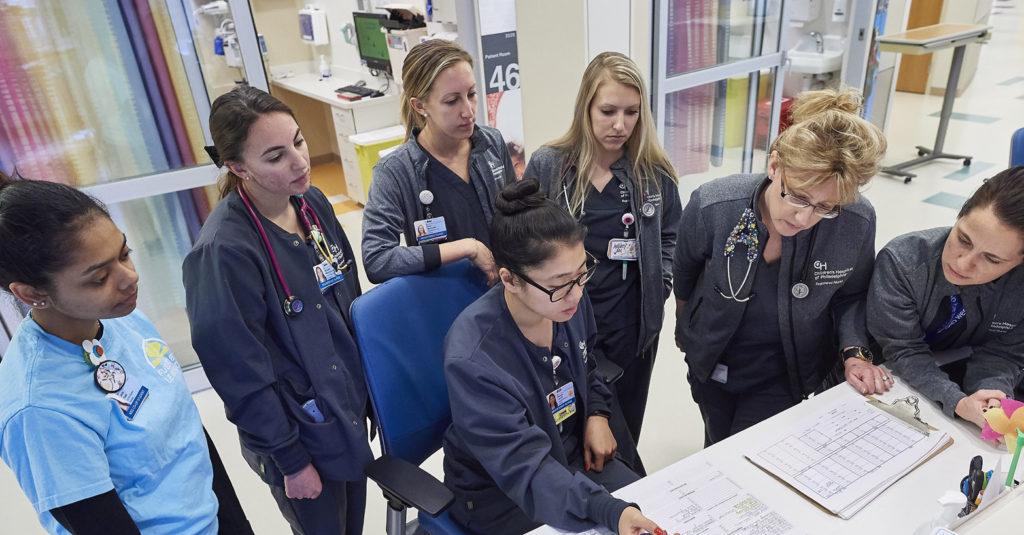Are you curious to know what is a PICU nurse? You have come to the right place as I am going to tell you everything about a PICU nurse in a very simple explanation. Without further discussion let’s begin to know what is a PICU nurse?
What Is A PICU Nurse?
In the realm of healthcare, there are various specialized nursing roles that require exceptional skills, knowledge, and compassion. One such role is that of a Pediatric Intensive Care Unit (PICU) nurse. These dedicated professionals provide vital care and support to the most critically ill and injured children. In this blog post, we will explore the role of a PICU nurse, understand their responsibilities, and recognize the crucial impact they have on the lives of young patients and their families.
The Role Of A PICU Nurse:
A PICU nurse is a registered nurse who specializes in providing comprehensive care to children from infancy to adolescence who require intensive medical attention. These young patients are often dealing with life-threatening conditions, recovering from major surgeries, or facing complex medical challenges. PICU nurses work in collaboration with a multidisciplinary team, including doctors, respiratory therapists, pharmacists, and social workers, to deliver optimal care to their patients.
Responsibilities And Skills:
- Monitoring Vital Signs: PICU nurses closely monitor and assess the vital signs of their patients, including heart rate, blood pressure, respiratory rate, and oxygen saturation levels. They are trained to recognize and respond swiftly to any changes or abnormalities, ensuring the child’s stability and well-being.
- Administering Medications and Treatments: PICU nurses are responsible for administering medications and treatments prescribed by physicians. They possess a strong understanding of pediatric pharmacology and dosage calculations to ensure accurate administration. They also assist with procedures, such as wound care, tracheostomy care, and central line maintenance.
- Collaborating with the Healthcare Team: PICU nurses work closely with doctors, respiratory therapists, and other healthcare professionals to create and implement individualized care plans for their patients. Effective communication, teamwork, and collaboration are vital in coordinating care and providing the best outcomes for these vulnerable children.
- Emotional Support for Patients and Families: A crucial aspect of a PICU nurse’s role is providing emotional support to both patients and their families. They help alleviate anxiety, address concerns, and provide reassurance during what can be an incredibly stressful and emotionally challenging time. PICU nurses establish rapport and build trust with families, fostering a therapeutic relationship that enhances the overall care experience.
- Advocacy and Education: PICU nurses act as advocates for their patients, ensuring their voices are heard and their needs are met. They also play a key role in educating families about the child’s condition, treatment plan, and necessary care techniques. Empowering families with knowledge and guidance helps them actively participate in their child’s care and facilitates a smoother transition upon discharge.
Impact And Rewards:
PICU nursing is a demanding yet highly rewarding profession. The impact a PICU nurse has on the lives of young patients and their families is immeasurable. Their expertise, compassion, and dedication can make a significant difference in the outcomes and overall experience of critically ill or injured children. Witnessing the resilience and progress of their patients brings immense satisfaction and serves as a driving force in their continued commitment to pediatric care.
Conclusion:
PICU nurses are essential pillars of support within the pediatric healthcare system. Their specialized knowledge, skills, and unwavering dedication contribute to the well-being of critically ill children and their families. Through their vigilance, compassion, and expertise, PICU nurses make a profound impact on the lives of their patients, providing comfort, healing, and hope during the most challenging times. Their commitment to pediatric care exemplifies the noble and vital role of nursing in the healthcare field.
Get more information about cast on Starcasto
FAQ
What Are The Duties Of A PICU Nurse?
Some of the duties that PICU nurses carry out daily are:
- Monitoring vitals and specialized readings. …
- Administering medication. …
- Record everything that happens in the PICU. …
- Become part of the multidisciplinary care team with doctors and other specialists, and together they can make a treatment plan for pediatric patients.
What Is The Difference Between Icu And PICU?
The PICU (pediatric intensive care unit) is the unit of a hospital that provides the highest amount of care to children. It is similar to the ICU (intensive care unit), where adults receive special care, but the staff in the PICU specializes in working with children.
Is PICU Or Nicu Better?
One of the biggest distinctions between a Pediatric Intensive Care Unit and a Neonatal Intensive Care Unit is that a PICU cares for infants and children up to age 17 (pediatric = children). A NICU (neonatal = newborn infants) specializes solely in the treatment of newborns who need a little more TLC.
What Does PICU Stand For In Nursing?
Neonatal intensive care unit (NICU)
I Have Covered All The Following Queries And Topics In The Above Article
What Is It Like To Be A PICU Nurse
What Is A Pediatric Intensive Care Unit (PICU) Nurse
What Is The Role Of A PICU Nurse
What Is It Like Being A PICU Nurse
What Is The Median Salary For A PICU Nurse
PICU Nurse Salary
PICU Nurse Responsibilities
PICU Vs Nicu
PICU Nurse Resume
Is PICU Nursing Hard
PICU Nurse Job Description Resume
How Long Does It Take To Become A PICU Nurse
PICU Nursing For Dummies
What Is A PICU Nurse
Is working in the PICU hard as a nurse
What are the duties of a PICU nurse
